In the realm of today’s fashion industry, sustainability is not merely a trend – it is a major shift in the way we approach clothing and textiles as a whole. And as the spotlight moves gradually on eco-friendliness, sustainable textile certifications have become necessary. They serve as a marker of fashion brands’ commitment to preserving the environment. A guide for environmentally conscious consumers who are looking for ethical options.
However, the path to truly genuine sustainability requires more than simply obtaining a certification. It encompasses a deeper dive into the activities behind such labels. A dive that challenges the approach of today’s fashion industry towards environmental supervision.
The aim of this blog post is to decode the complexities surrounding sustainable textile certifications. The article emphasizes their importance and stresses the necessity for a better holistic approach to environmental and social sustainability. In the process of this exploration, we stress the importance of thorough validation of those certifications, championed by true industry leaders such as Deepwear.
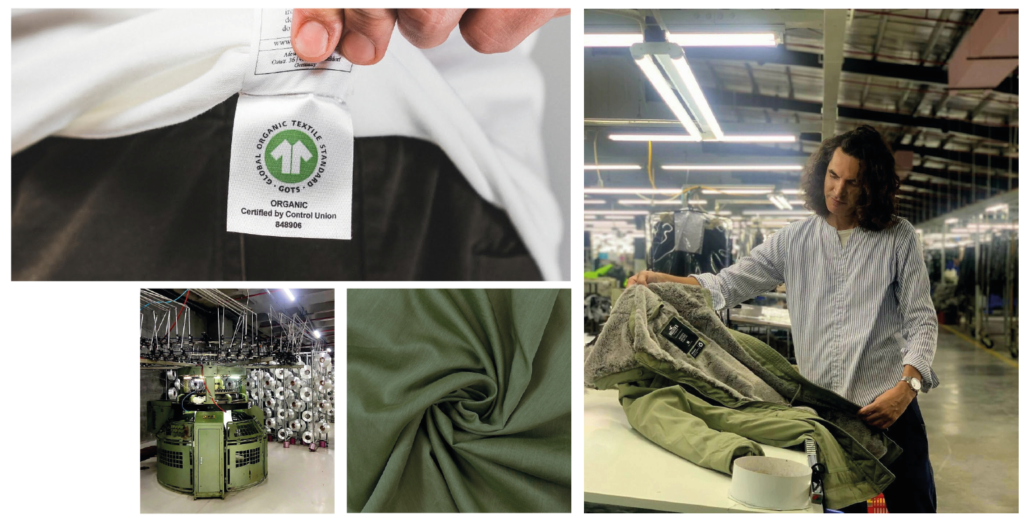
The True Essence of Textile Sustainability Certifications in Fashion
Over the past decades, sustainability certifications for businesses have started to serve as key indicators of a company’s commitment to environmentally friendly practices. But what is a sustainability certification anyway? The sustainability certification covers several aspects, ranging from responsible material sourcing to ethical product manufacturing. Among the best ones to look for are:
- GOTS – Global Organic Textile Standard
- GRS – Global Recycled Standard
- BCI – Better Cotton Initiative
- FSC – Forest Stewardship Council
- OEKO-TEX – globally recognized certification and testing system for textiles

These certifications have a fundamental role in the realm of sustainable fashion. They serve as an indicator of ethical material sourcing and as promoters of environmental responsibility. For instance, the Global Organic Textile Standard (GOTS) and OEKO-TEX set the bar high. However, as the consumer demand for eco-friendly products rises, so does the temptation for some businesses to misuse those certifications, urging for a more adamant approach towards sustainability.
This is where the insight, expertise and know-how of fashion agencies like Deepwear steps in. Deepwear’s approach in that regard utilizes a thorough examination of fashion manufacturing practices, making sure that a brand’s sustainability claims are not just eyewash.
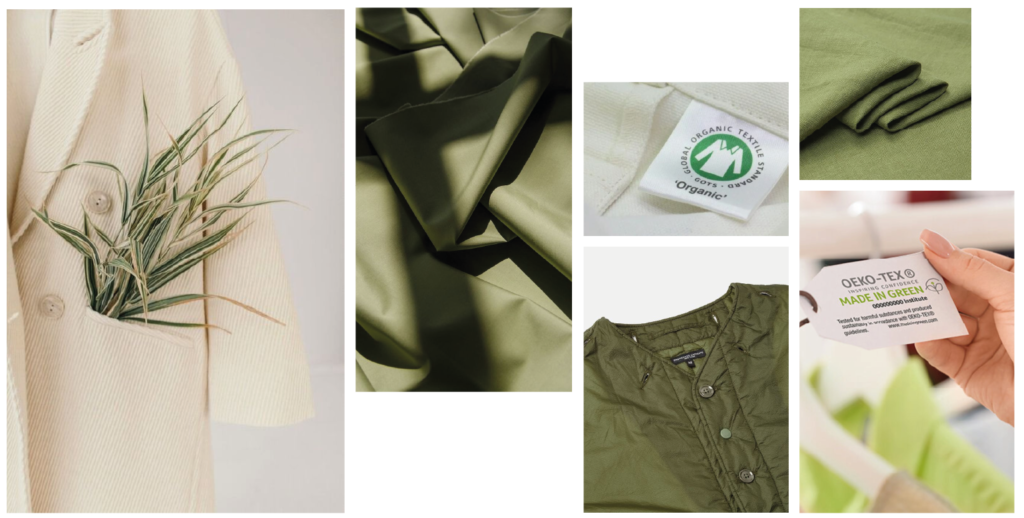
A Critical Approach to Sustainable Fashion
Sustainable fashion certifications, like GOTS and GRS (Global Recycle Standard), are invaluable tools when it comes to assessing a company’s environmental footprint. Sophisticated brands and clients are realizing that those certifications are more of starting points, rather than endpoints. In other words, their intricate nature requires a deeper understanding of what they truly stand for.
Recognizing the best sustainability certifications is a duty that requires careful consideration. Having said that, each certification, being it for sustainably sourced materials or ethical production practices, represents a specific eco-friendly aspect. However, it can only go so far. The true test of a business’s commitment to sustainability usually lies in its willingness to allow for an independent evaluation of its activities.
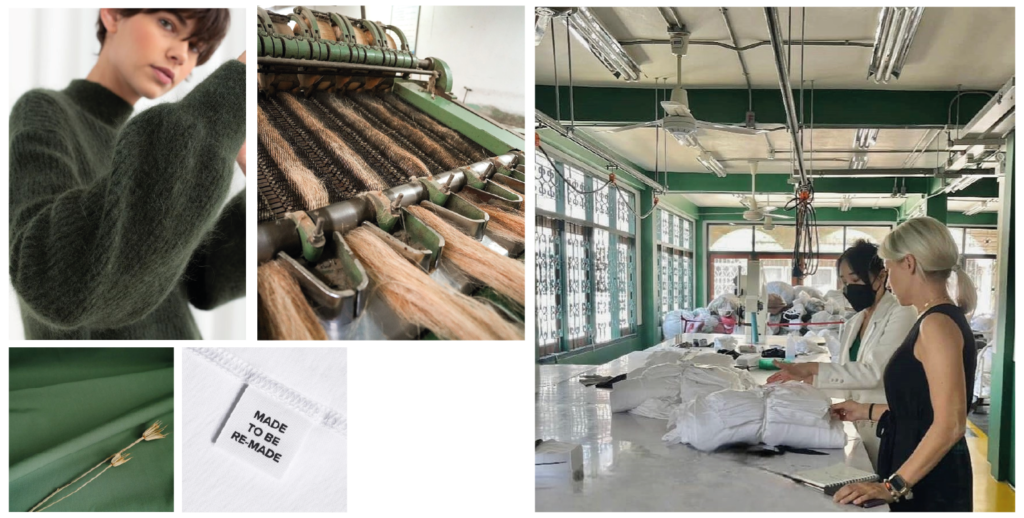
Making sense of Textile Sustainability standards
As the name implies, textile sustainability standards or certifications cater to the fashion industry, with a focus on the social and environmental impact of textile manufacturing. However, while those certifications are paramount, they are not exhaustive. This is why thorough examinations, such as the ones conducted by Deepwear, are integral to ensuring that brands adhere to not just the letters, but also to the soul of those standards.
Here is a brief overview of the most commonly used certifications within the fashion industry:
- GOTS – Global Organic Textile Standard: a globally recognized certification when it comes to organic textiles and clothing. It sets adamant standards for the entire textile supply chain, from the natural cultivation of fibers through environmentally and socially responsible manufacturing to labeling.
- GRS – Global Recycled Standard: an international certification for primarily textile products made from recycled materials. It covers elements such as traceability, recycled content requirements, and environmental and social criteria.
- BCI – Better Cotton Initiative: more of a standard or program that focuses on sustainable cotton production. The program works with a diverse range of stakeholders to promote better environmental and social responsibility practices in the cotton supply chain.
- FSC – Forest Stewardship Council: a globally recognized certification system that acts as a verifier and promoter of responsible forest management and the
- traceability of forest products. It makes sure that wood-based products, such as paper or furniture, come only from sustainably managed forests.
- OEKO-TEX: a globally recognized certification for textiles and similar materials. It is designed to ensure that products are free from harmful substances and chemicals that could be harmful to human health and the environment.
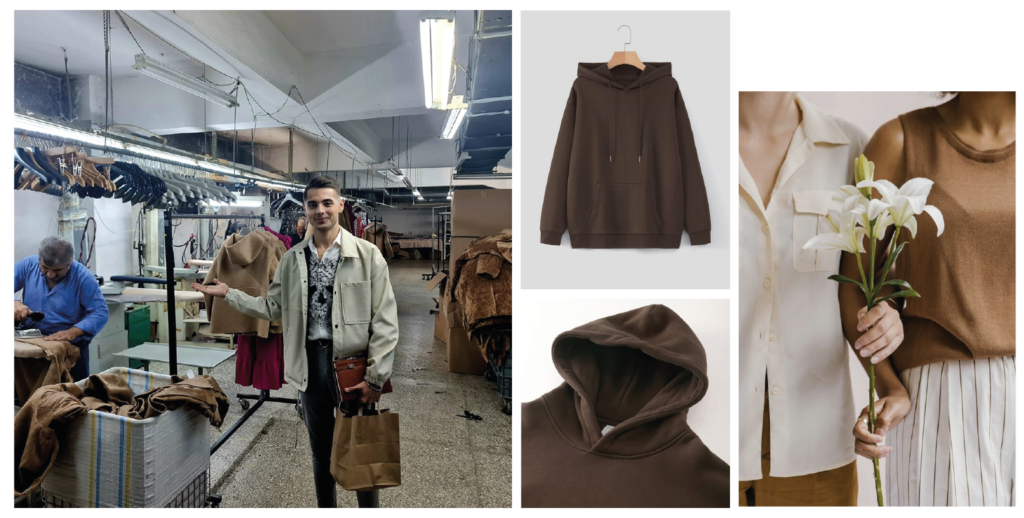
Environmental Textile Sustainability Certifications in Fashion for a Bigger Impact
Environmental certifications for businesses serve as guiding stars to sustainable practices across industries of all kinds. These standards encompass a broad scope, focusing on aspects such as energy usage, waste handling, and carbon footprint. Nevertheless, the real effectiveness of such practices is best evaluated via rigorous assessments and not merely via certifications alone. With over 30 years of experience within the fashion sector, Deepwear boasts the expertise needed to discern the authenticity of such certifications.
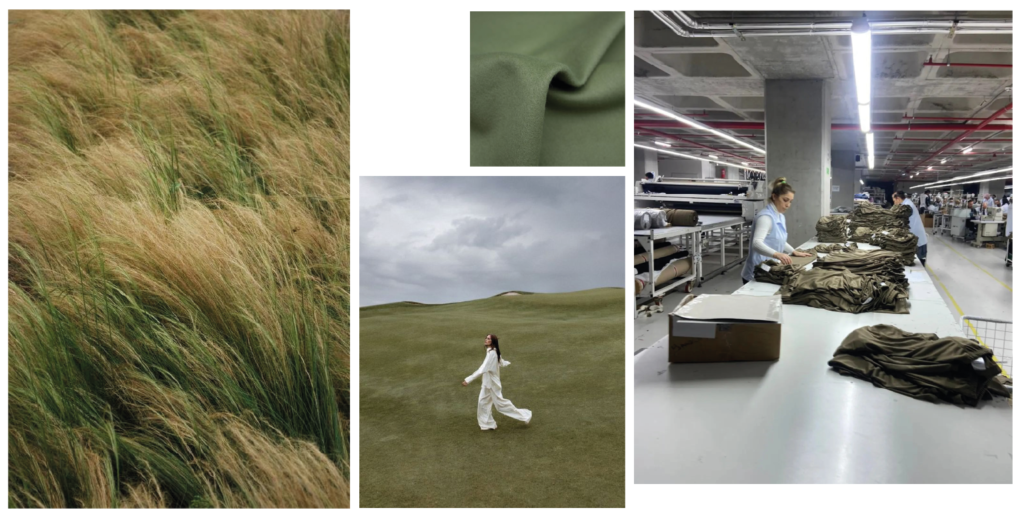
Deepwear’s Approach to Authenticating Sustainability
Deepwear’s approach to authenticating sustainability goes well beyond certification labels. Having amassed plenty of experience in the fashion industry, Deepwear knows better than anyone the importance of adamant verification when it comes to factory practices. Its specialists recognize that even though certifications represent a great starting point, the real essence of eco-friendliness lies in the inspections and direct contact with the supply chain.
By visiting factories in person and scrutinizing their operation processes, Deepwear ensures that its partners not only claim to have adopted but actually practice genuine sustainability. The hands-on approach in this regard guarantees that companies live up to the eco-friendly standards and certifications they uphold. This way sustainability in fashion evolves from just a label to a reality.

Final thoughts
As the fashion world keeps on evolving, the need for sustainable business practices becomes essential. While sustainable textile certifications are paramount in this regard, they represent just the starting point of a much bigger narrative. True fashion sustainability involves a sophisticated approach that goes well beyond certifications. An approach that includes in-depth evaluations and physical verifications.
Concluding, Fashion agencies like Deepwear play an integral role in this process. With extensive experience and full commitment to sustainability, Deepwear serves as an example for the sector. The company does not simply rely on certifications but actively makes sure that its practices are as eco-friendly as claim to be. As we glance into the fashion future, it is clear that the road to true sustainability goes via a combination of certification, vigilance, and action. A road that Deepwear navigates with immense expertise and high integrity.